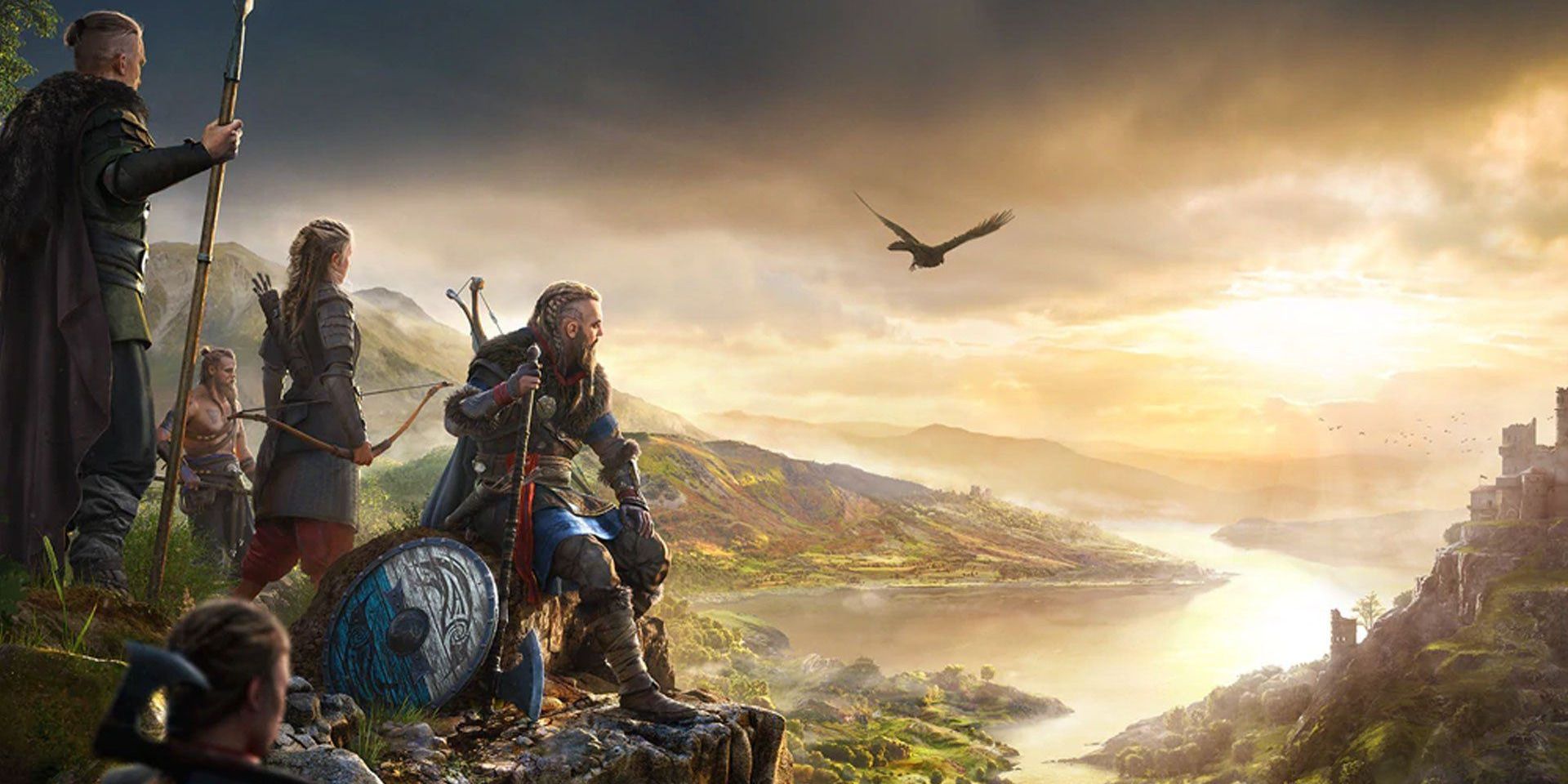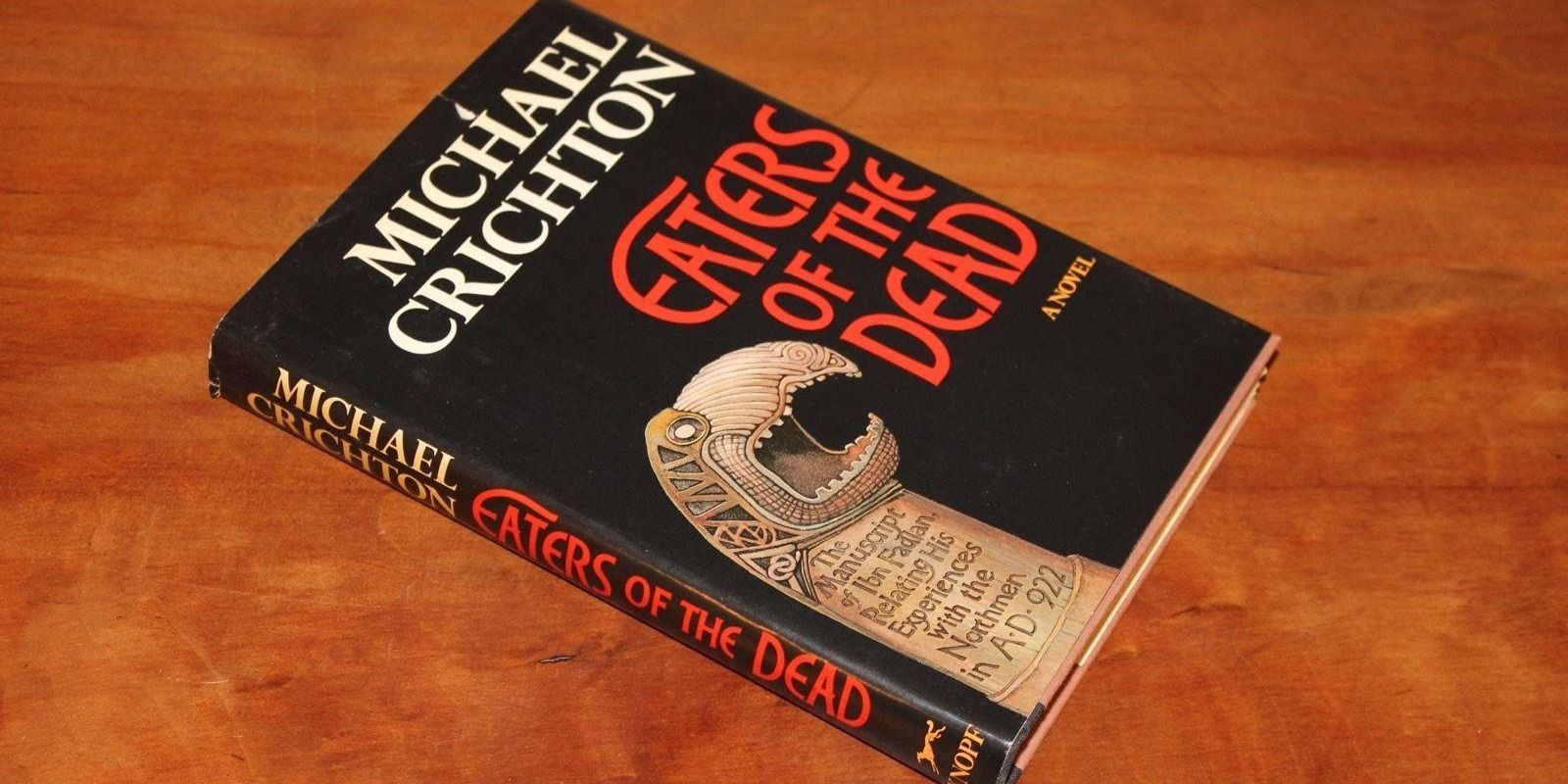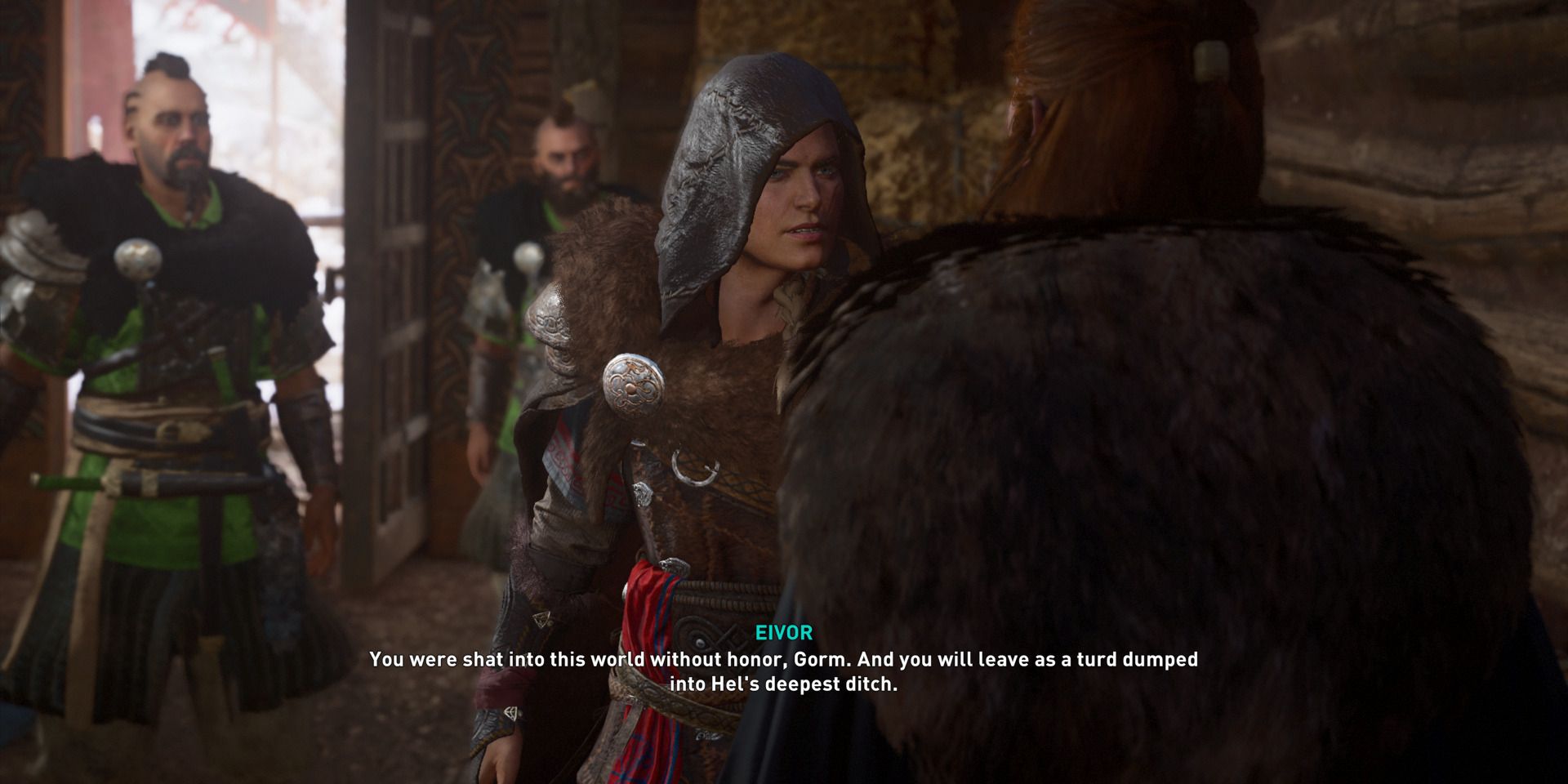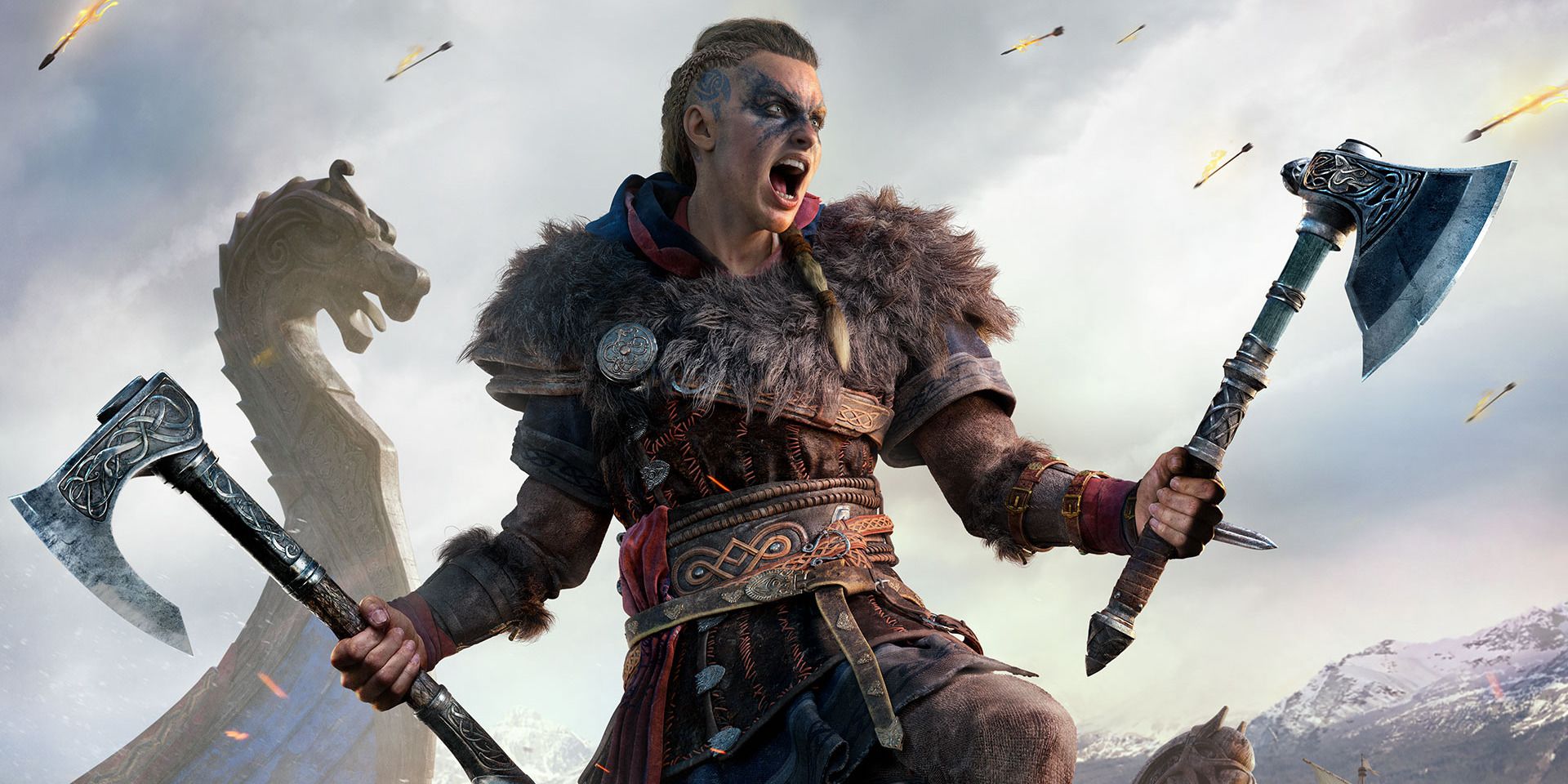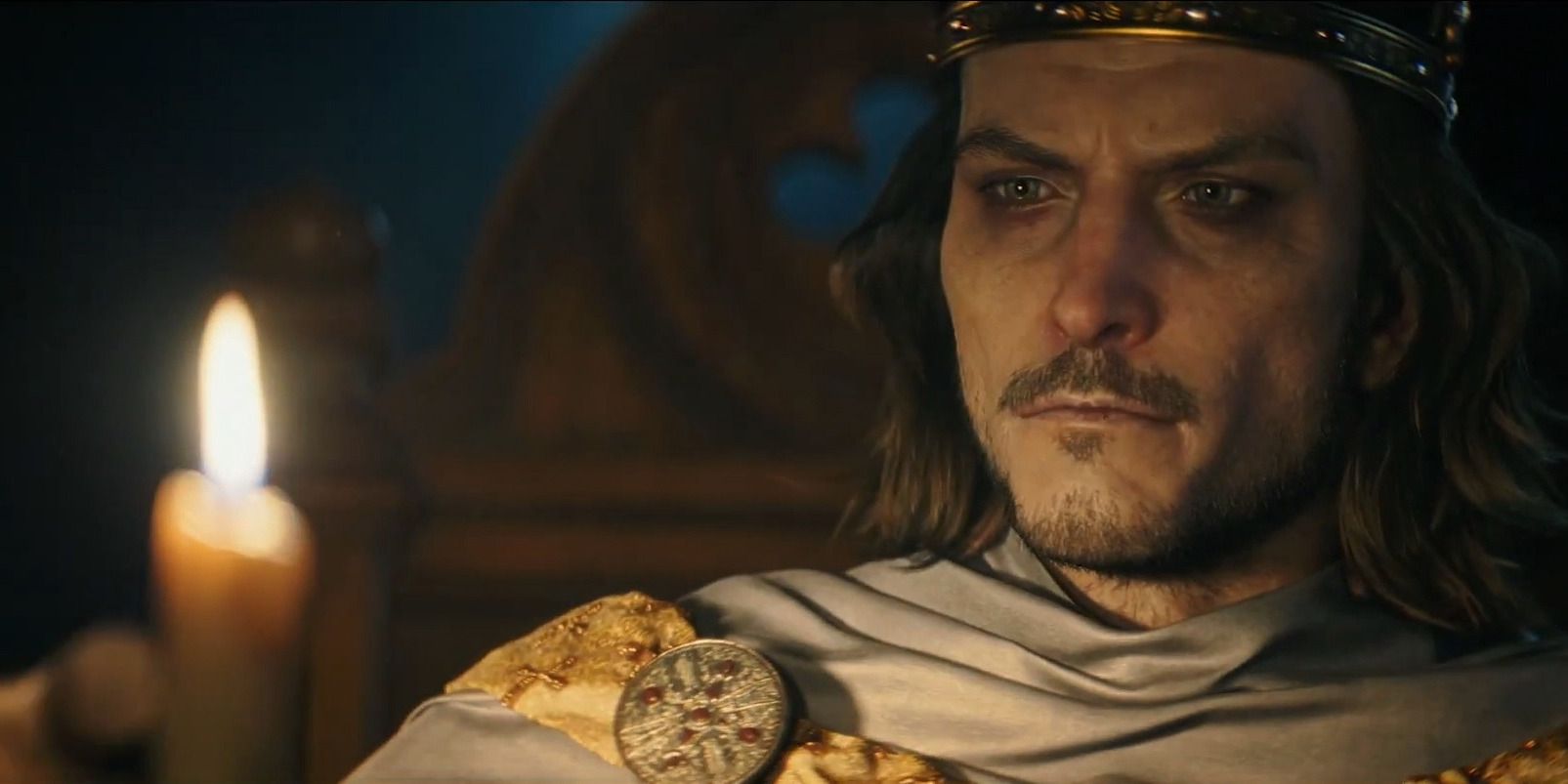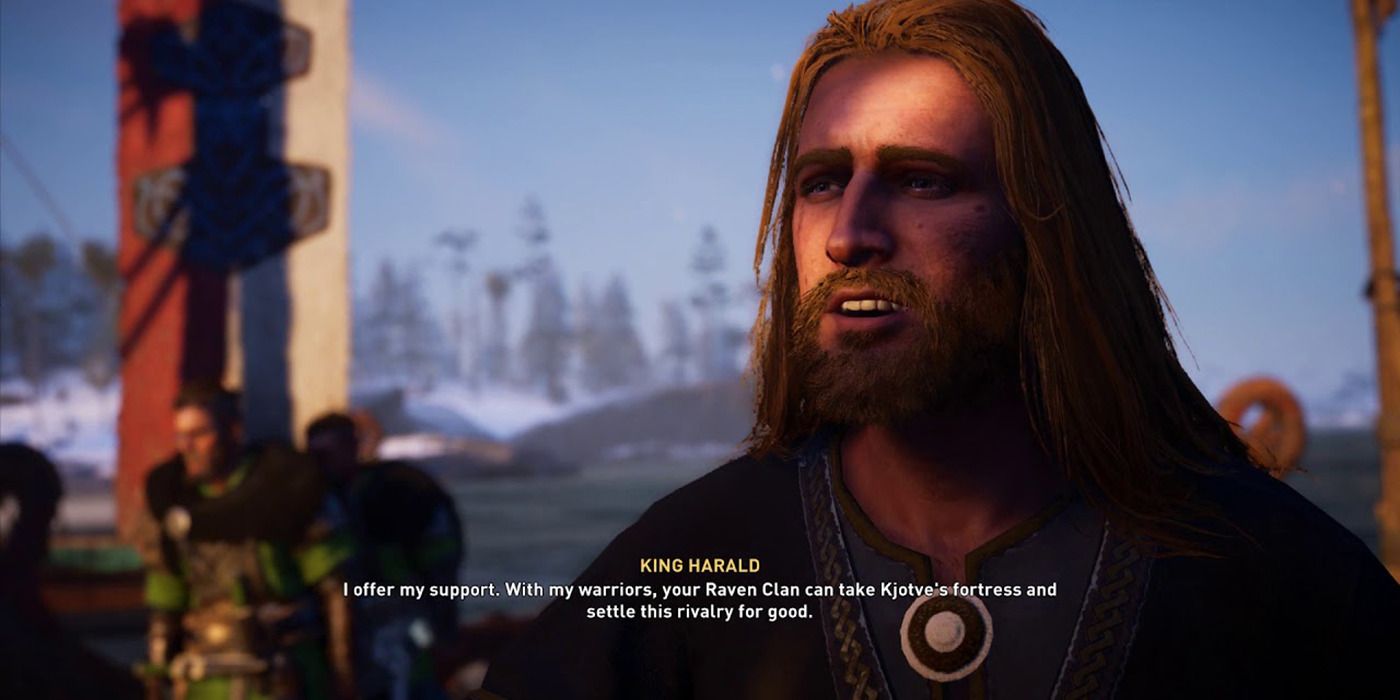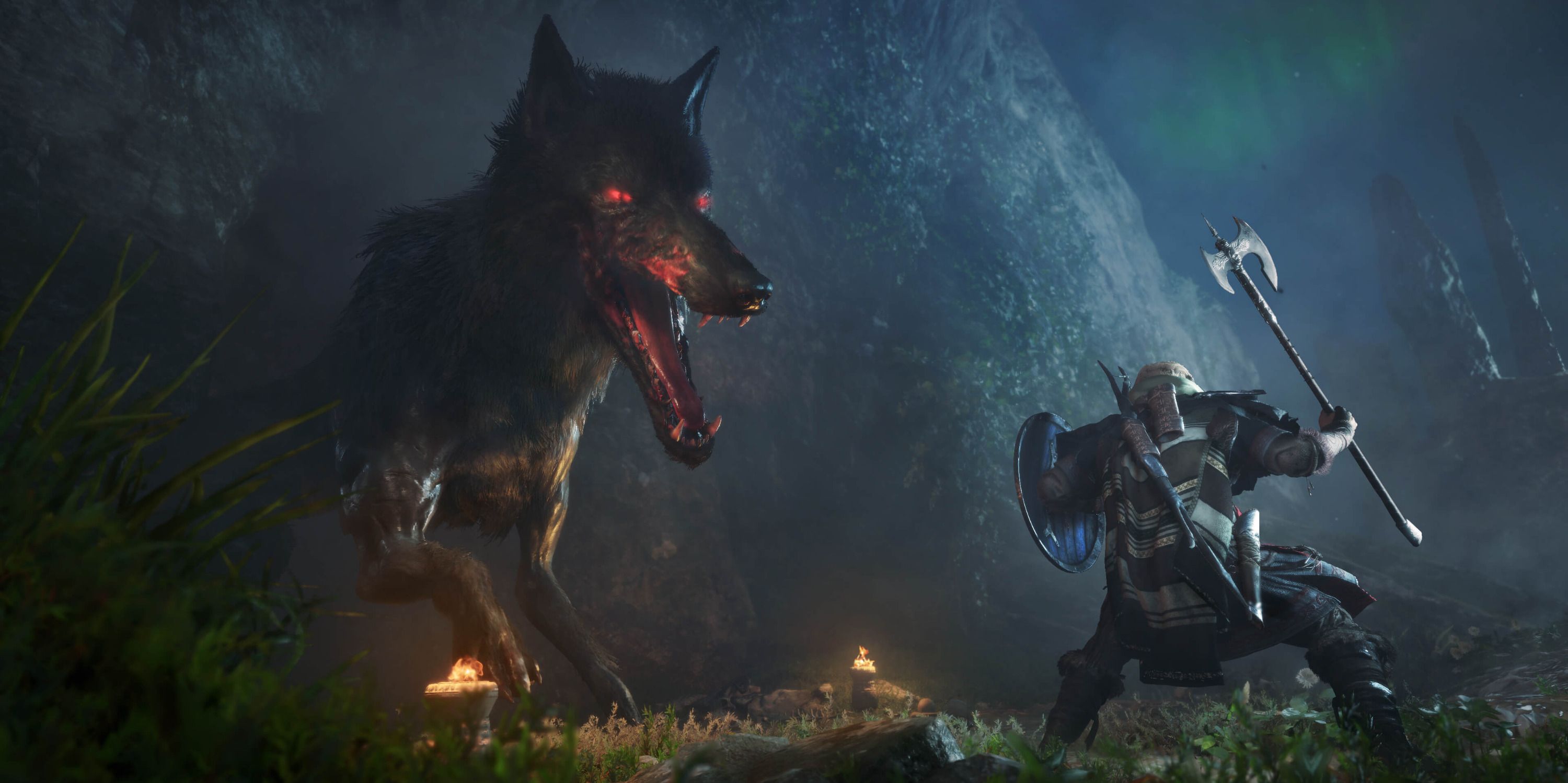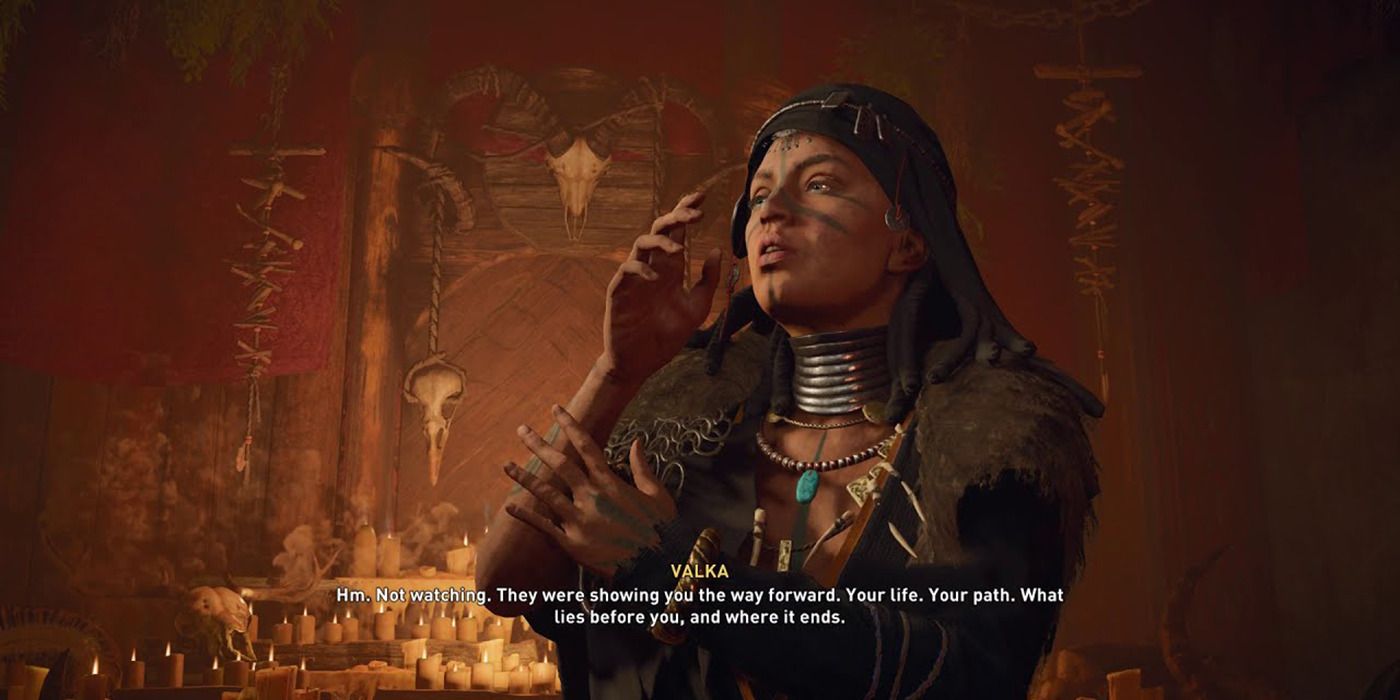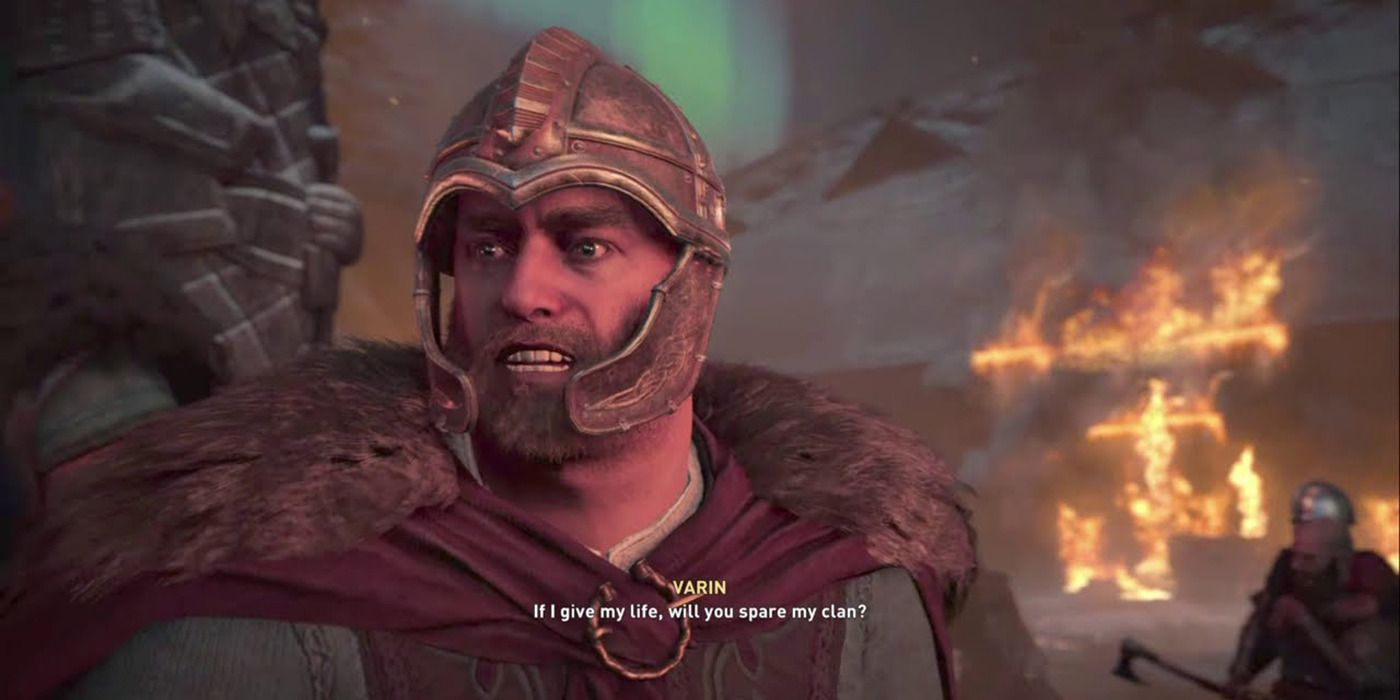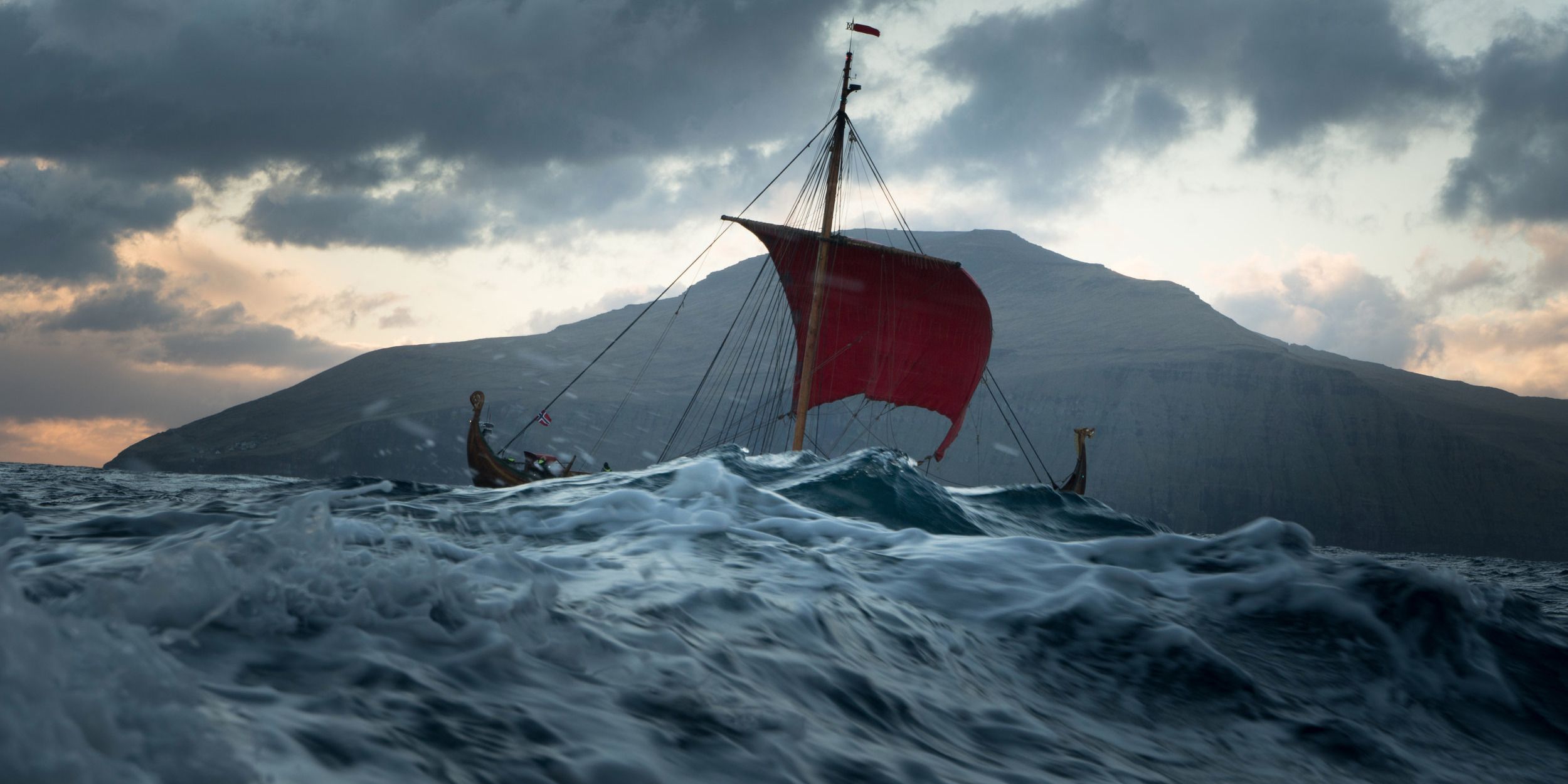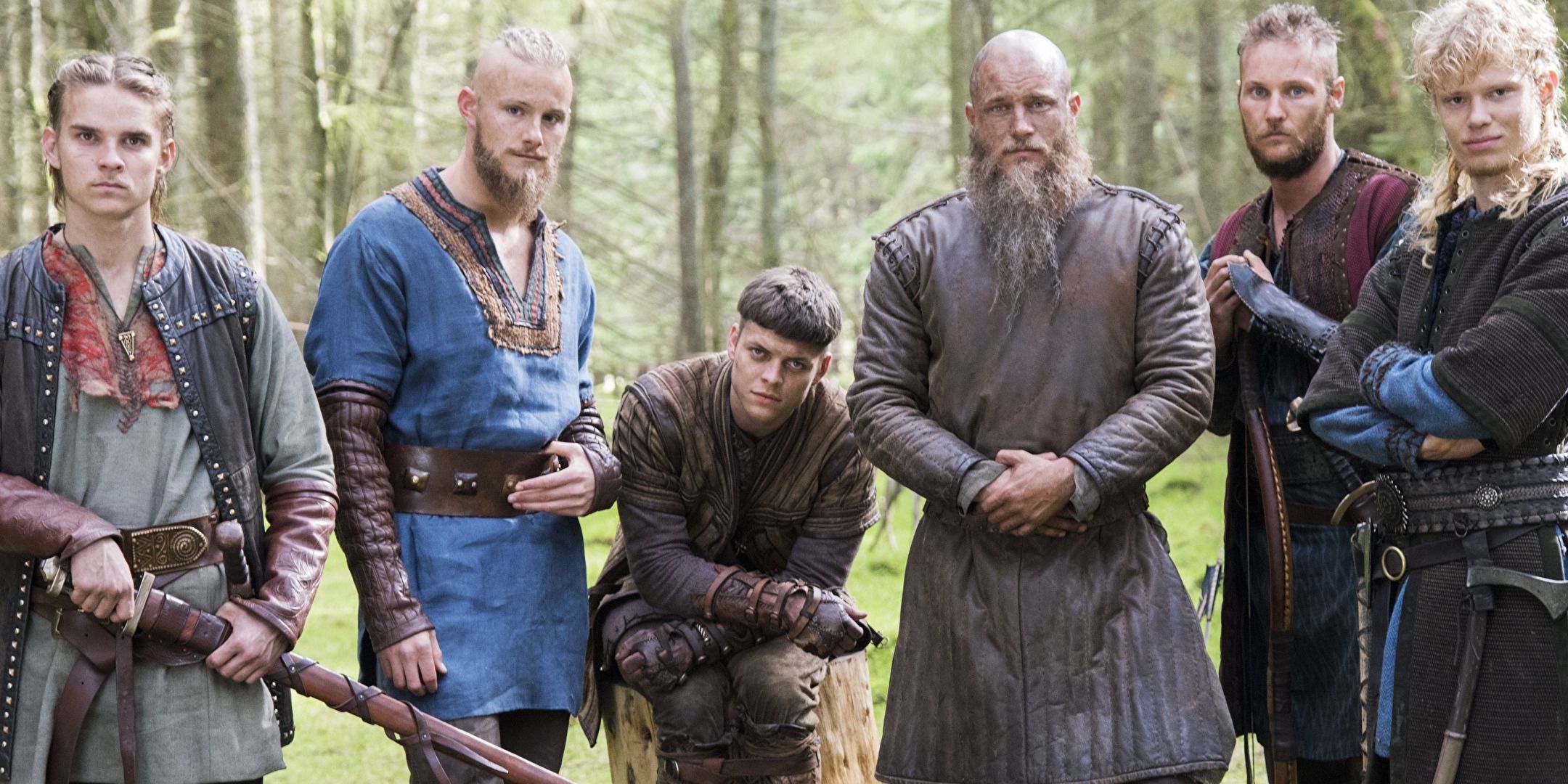Once Assassin's Creed Origins' hype died down, many fans wondered what would come next out of Ubisoft Montreal. Ubisoft Quebec came out with Odyssey in 2018 to some rather mixed reviews, followed by a hiatus from the company's annual Assassin's Creed release, then the announcement of Montreal's project: Assassin's Creed Valhalla. Set in the late 9th century both in Norway and to the west in England, the story follows a Viking whose story can safely be described as an epic saga. Indeed, there isn't much that the Viking Eivor can't (and doesn't) do.
Valhalla received more positive reviews, and part of this was owing to the strength of the story. Told in a unique format, this entry's narrative feels different from the others, though it begins with the iconic father-gets-murdered scene that sparks it all. In a game filled with nearly just as much to do as there are in-game trees around England, it can be easy to glaze over some of the finer details that are worth a mention and some attention.
10 Readers of the Dead
Perhaps fans of Jurassic Park's author Michael Crichton already picked up on this, but even if they haven't, it's not as clear as day. During an interview, a Ubisoft developer explained that Valhalla was influenced partly by Michael Crichton's 1976 novel Eaters of the Dead. Deftly told, Crichton's tale is one of a Muslim Arab who travels with a band of Vikings who travel north to battle with the "mist monsters," a tribe of savages suggested to be Neanderthals.
That's only the first part of the novel; the second is based upon Beowulf, one of the most famous Viking sagas. Of course there's no ignoring that Valhalla drew inspiration from Beowulf, too, but the former is lacking in dragons when compared to the latter. Maybe Valhalla will inspire fans to explore other epic tales of Viking legends.
9 A Subtle Treachery
When playing, it's hard not to like Eivor, especially when he/she is skipping around trick-or-treating during Samhain. However, if one takes a step back and considers his/her actions throughout the narrative, it doesn't sit too well. Perhaps this is because Eivor is a villain, just in a world of worse villains. Particularly interesting about this is the inversion of the Viking stereotype: in Valhalla, Vikings are not depicted as bloodthirsty heathens, but rather as people with culture and a desire for settlement and community.
It's as refreshing a take on these warriors as History Channel's Vikings, but it doesn't do much to hide the brutality of Eivor and the Viking invaders. Throughout, Eivor kills, expands, wages war, plays politics, and (possibly) seduces Sigurd's wife. It's only that the Order of the Ancients and Sigurd are way worse that Eivor comes out looking squeaky clean.
8 Maidens of the Shield
One of the choices in Valhalla is Eivor's gender, and Ubisoft confirmed both are canon. This is noteworthy for two reasons, with the first being that the Assassin's Creed franchise had yet to have a female protagonist in one of its main games. (There's something to be said for Syndicate and Liberation, but Evie unevenly shares the spotlight with Jacob, and Liberation was a fairly under-the-radar release.)
The second is that this detail is well within the realm of historical possibility. In Viking history and mythology, Shield Maidens were women of extraordinary warrior skill, who would fight and defend alongside the men. Although there isn't much historical evidence to either confirm it or refute it, there are Scandinavian sagas that make references to such figures, and Eivor can be one of them.
7 A Regrettable Decision
Valhalla's events are placed at the center of the Assassin's Creed universe, marking a turning point in the conflict between the Order of the Ancients and the Hidden Ones. Near the end of the story, it's revealed that King Aelfred was the anonymous tipper known as the "Poor Fellow-Soldier of Christ," and his goal was to eliminate the Order for what he perceived to be heresy against Christianity. He succeeds and swears to create a new God-fearing order.
As players probably guessed, Aelfred's reference is to the Knights Templar. While it's obvious that the Templars arise to take the Order's place, the hint was delivered in a crafty way: Aelfred's moniker "Poor Fellow-Soldier of Christ" is an alternate name to the Knights Templar, called "The Poor Fellow-Soldiers of Christ and the Temple of Solomon," though how Aelfred survives another 200 years to fight in the First Crusade is a mystery.
6 Hopeful Harald's Dream
While Eivor and Sigurd are still in Norway, they set out to take their revenge on Kjotve. En route, they encounter another Scandinavian legend, King Harald, who shares his lofty ambitions of uniting Norway and ruling as its king. Styrbjorn, Sigurd's father, pledges loyalty, angering Sigurd enough to go to England. Players don't learn much about Harald Fairhair after that, but he does unite Norway, according to legend.
However, Harald's overall existence is an area of contention, with many historical references to a Harald, but it wasn't an uncommon name in that region. One theory goes so far as to suggest that Harald was a legend fabricated to explain the creation of the Viking settlement in Iceland, whose people had fled an overbearing Norwegian ruler. Regardless, Sigurd wouldn't have wanted to hear any of it.
5 Just Like Old Times
One of the reasons that Valhalla stands apart from the other Assassin's Creed titles is in the structure of its story. Where the franchise usually opts for a singular tale about a character (Ezio's being arguably the most epic), this time they took a page out of Viking literature. Resembling the traditional format of a Viking saga, Valhalla features not a single story, but a collection of adventures that take place in different regions around a single figure.
The result is a string of episodic adventures filled with themes of honor, bravery, and betrayal. Once an adventure is over, Eivor returns to Ravensthorpe to be among his/her people, recharge, then set out for another legend. At its core, players get is a tale reminiscent of Beowulf's anthology-style epic, following the exploits of someone almost too extraordinary for reality, raking up the glory like leaves on a lawn.
4 Valka's Magical Guess
Like other characters in Assassin's Creed games, Eivor suffers from visions; except, unlike the others, Eivor is the only one who seeks out some spiritual guidance for it. Meet Valka who's a Seer, which are oracles in Viking history that were said to speak to the gods. Valka induces another vision in Eivor of Odin binding the wolf Fenrir as part of his plan to avert Ragnarök, then she explains that it means Eivor will betray Sigurd in the future. Being equated to Odin's binding of Fenrir hints at some truly deep-level betrayal.
There are indeed opportunities to choose actions that do stab Sigurd in the back a little (particularly with Randvi), but these are choices and players could, in theory, not betray Sigurd at all. Regardless, the betrayals don't seem to play a big part in the story, which seems either like a narrative oversight, or Valka was a fraud just giving general answers and happened to be right.
3 Outgrowing The Old Man
Valhalla takes a sharp left turn with Eivor's and Sigurd's being uploaded into a computer simulation of Valhalla, where dead warriors fight battles then feast every day. It doesn't take Eivor long to realize it's all not real, but not before becoming convinced that Varin, his/her father, is there. One day, Sigurd (who's totally buying all of it) surprises Eivor with his/her father, but Eivor seems to have undergone a change.
Eivor claims to know that the world there is fake, that it couldn't be the real Valhalla since Varin is there, and Varin wouldn't be there because he died a coward's death. (Varin's surrender was seen in Viking culture as a sign of cowardice.) Whether or not Eivor's right, the analysis seems rather harsh, and it feels a bit unexpected, considering how important it was earlier to hunt down and make Kjotve pay.
2 Across The Pond
The journey from Norway to England by ship is peanuts compared to the ship voyage from England to North America. Not horribly long ago, it was discovered that Vikings had reached the New World, and likely much earlier than anyone had thought North America first had visitors. Valhalla seems to run with this, having Layla in the present world travel with Shaun and Rebecca to New England, finding the remains of a certain Viking traveler.
Since these remains are the source of the Animus' simulated memories, that corpse is Eivor's. Now, how did Eivor get to North America? While Eivor does go on plenty of journeys throughout England, traveling to the New World and dying there suggests a trip of a more permanent type. As to what caused that, it's anyone's guess, including Valka's.
1 The Ragnarssons
One of the coolest decisions of Valhalla was to introduce the sons of Ragnar. As the name suggests, they are the famed sons of Ragnar Lothbrok, the epitome of a Viking legend. Despite Ragnar's legacy not playing much of a part in the story, it's a legacy that, if players know of it, is still felt.
Eivor's in England, after all. Who got the Vikings there? According to the History Channel, it was Ragnar Lothbrok. With the staggering shadow cast by Ragnar's legacy, it's little wonder why Ivar is so obsessed with how his stories will be told across the ages. Indisputably, Ivar succeeded–here he is, a thousand years later.

